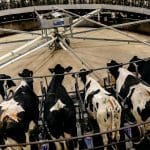Hey there, eco-warriors! Today, we’re diving into the world of sustainable diets and exploring the question on everyone’s mind: can going vegan really help save our planet? Let’s break it down and see how our food choices can have a big impact on the environment.
It’s no secret that our food choices play a significant role in the health of our planet. Animal agriculture is a major contributor to greenhouse gas emissions, deforestation, water pollution, and habitat destruction. But sustainable diets offer a solution, and veganism is at the forefront of this movement towards a more eco-friendly way of eating.

The Environmental Impact of Animal Agriculture
Animal agriculture is a major driver of environmental degradation. The production of meat and dairy products is responsible for a significant portion of greenhouse gas emissions, with methane being a particularly potent contributor to climate change. Deforestation is also a common practice associated with expanding livestock operations, leading to loss of biodiversity and destruction of natural habitats.
Water usage is another concerning aspect of animal agriculture, with vast amounts of water required to raise livestock and produce animal products. The runoff from animal farms can also lead to water pollution, impacting both aquatic ecosystems and human health.

The Benefits of a Vegan Diet for the Environment
Choosing a vegan diet can have a positive impact on the environment in several ways. By eliminating animal products from our plates, we can significantly reduce our carbon footprint. Plant-based diets have been shown to require fewer resources and generate lower levels of greenhouse gas emissions compared to diets that include animal products.
In addition to reducing greenhouse gas emissions, vegan diets also have a lower water footprint. The water usage associated with plant-based foods is generally much lower than that of animal products, making veganism a more water-efficient choice for the environmentally conscious consumer.
Preserving ecosystems and wildlife habitats is another important benefit of veganism. By reducing the demand for animal products, we can help decrease the pressure on natural habitats and promote biodiversity conservation.
Challenges and Considerations
While the benefits of a vegan diet for the environment are clear, there are challenges and considerations to keep in mind. Access to sustainable and affordable plant-based food options can be a barrier for some individuals, especially in food deserts or areas with limited grocery stores.
Nutritional considerations are also important when transitioning to a vegan diet. It’s essential to ensure that you are getting all the necessary nutrients to support your health and well-being. Consulting with a healthcare provider or nutritionist can help you navigate the ins and outs of a well-balanced vegan diet.
Addressing food waste is another key aspect of sustainable eating. While plant-based diets have a lower environmental impact overall, it’s essential to minimize food waste and make conscious choices to reduce our ecological footprint.
Conclusion
As we’ve seen, the environmental benefits of veganism are significant. By choosing a plant-based diet, we can reduce our carbon footprint, lower our water usage, and help protect ecosystems and wildlife habitats. So, next time you’re considering what to put on your plate, remember that going vegan isn’t just good for your health – it’s also a powerful way to help save our planet.
4.4/5 - (9 votes)









